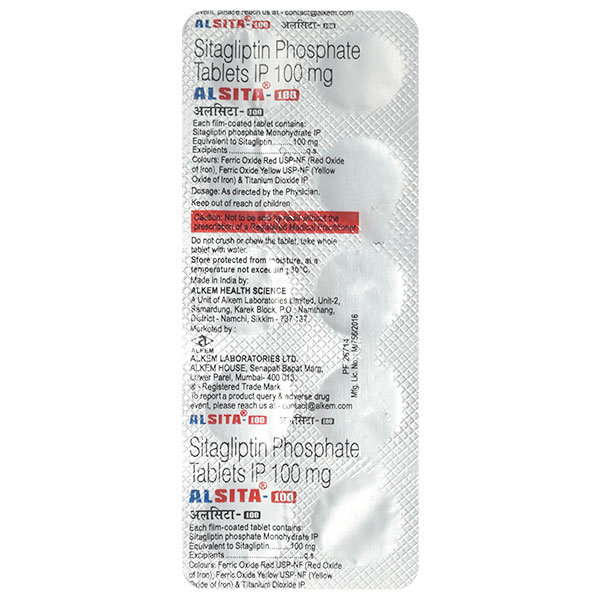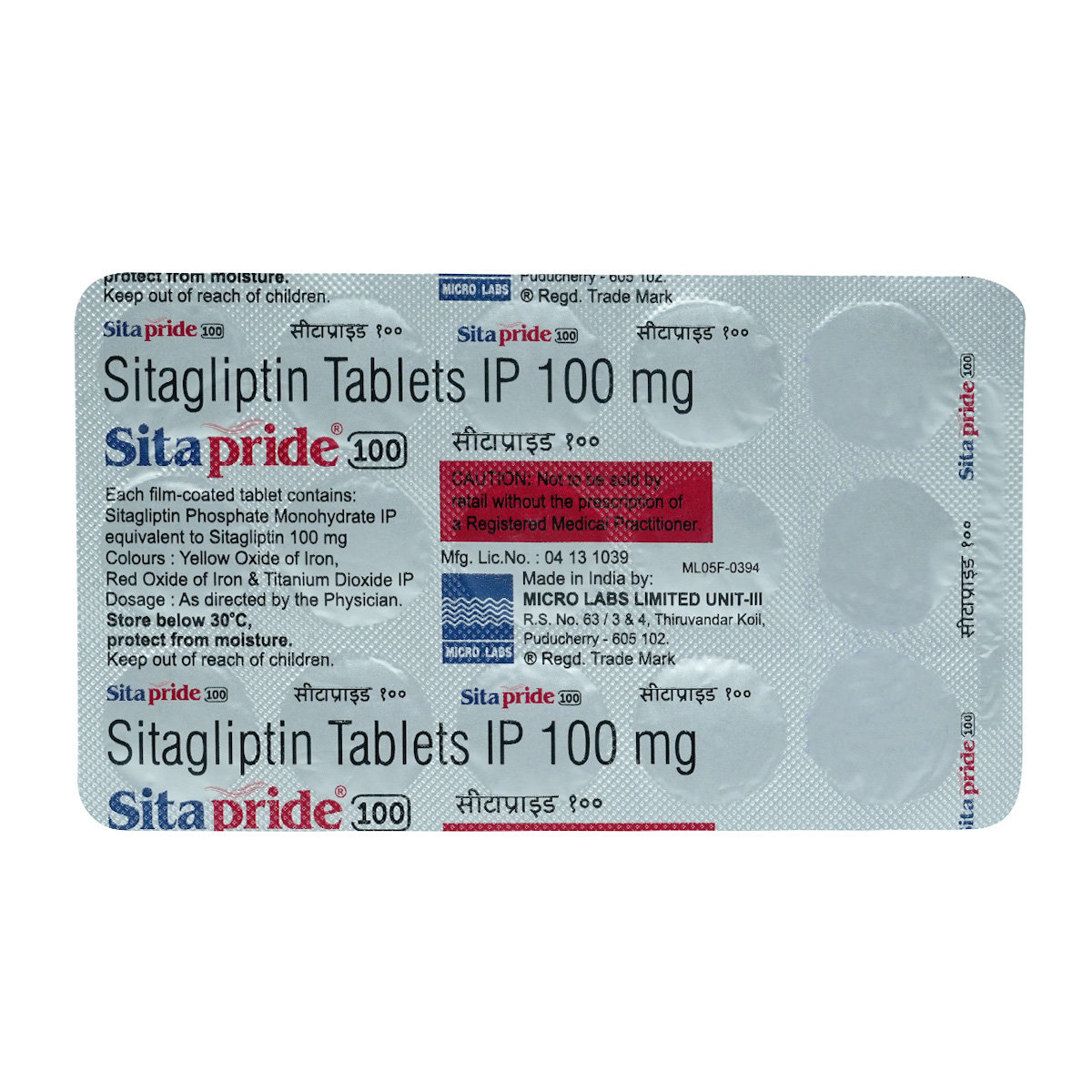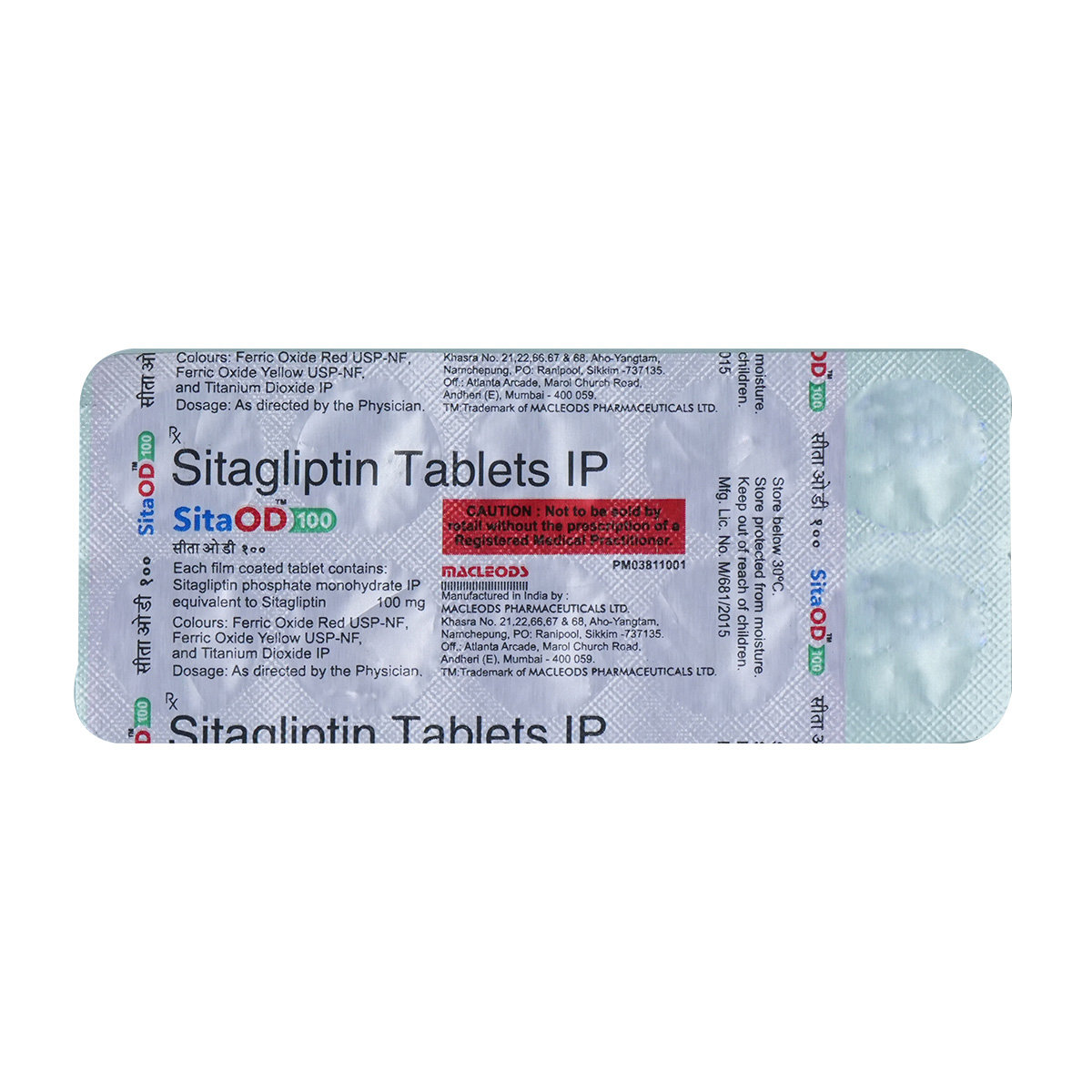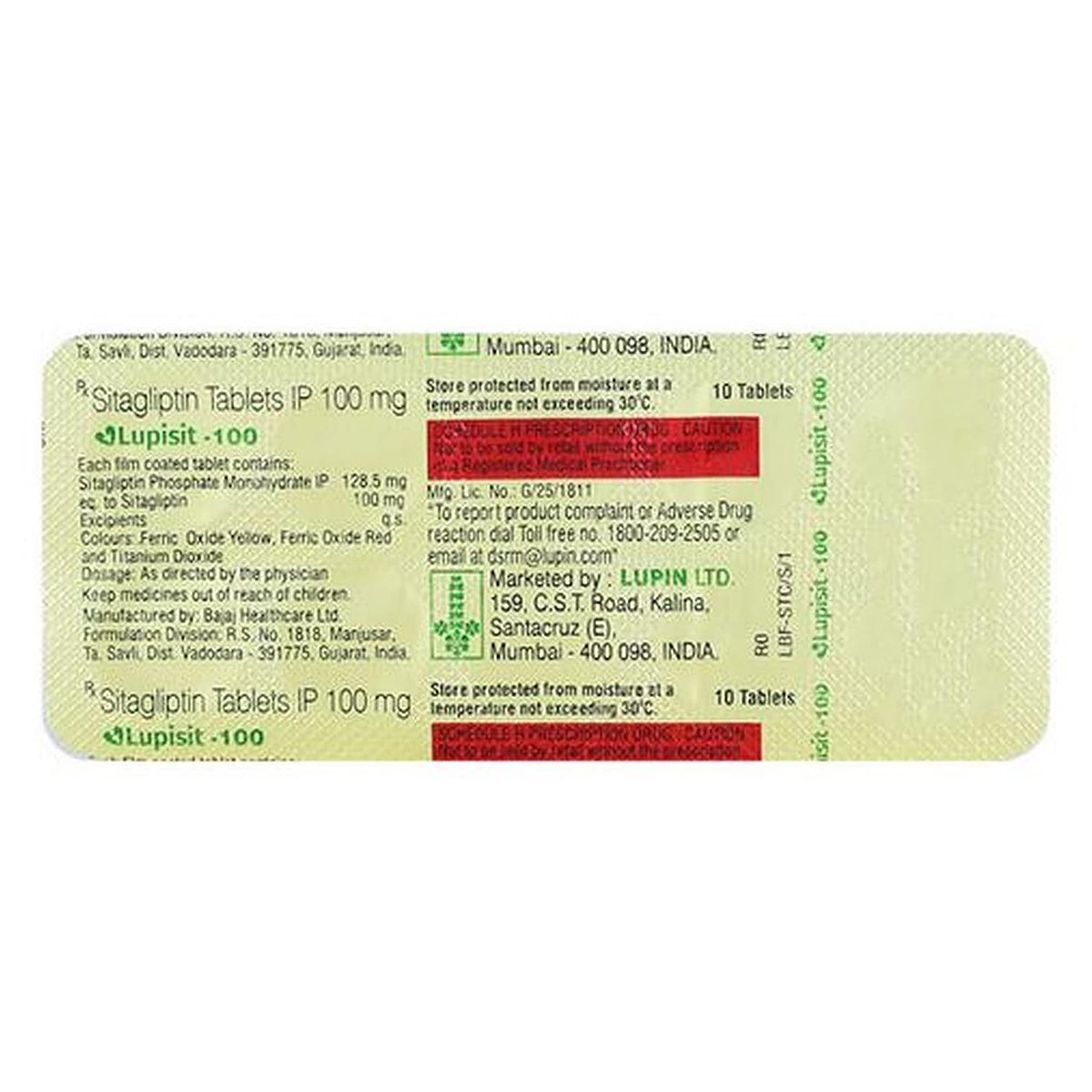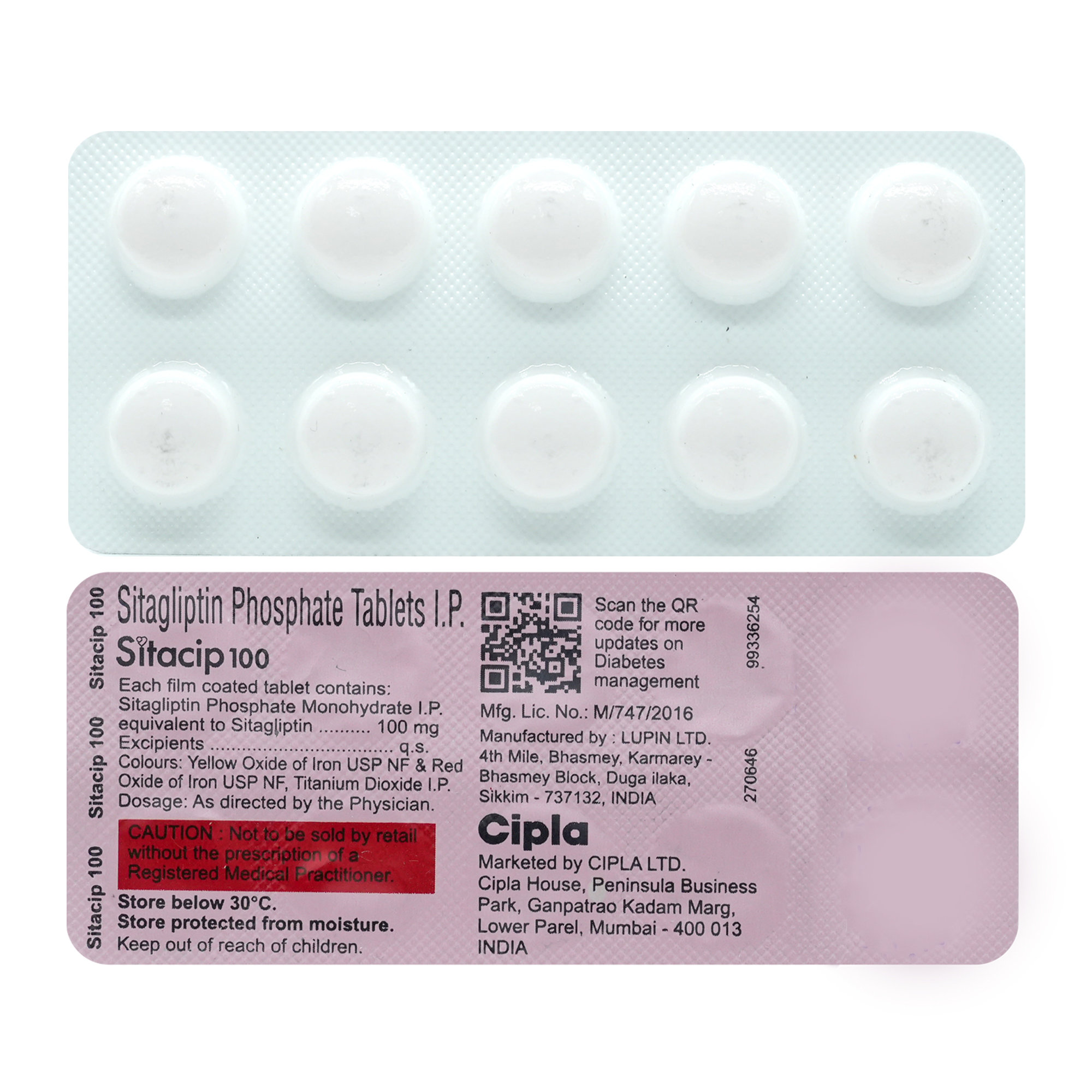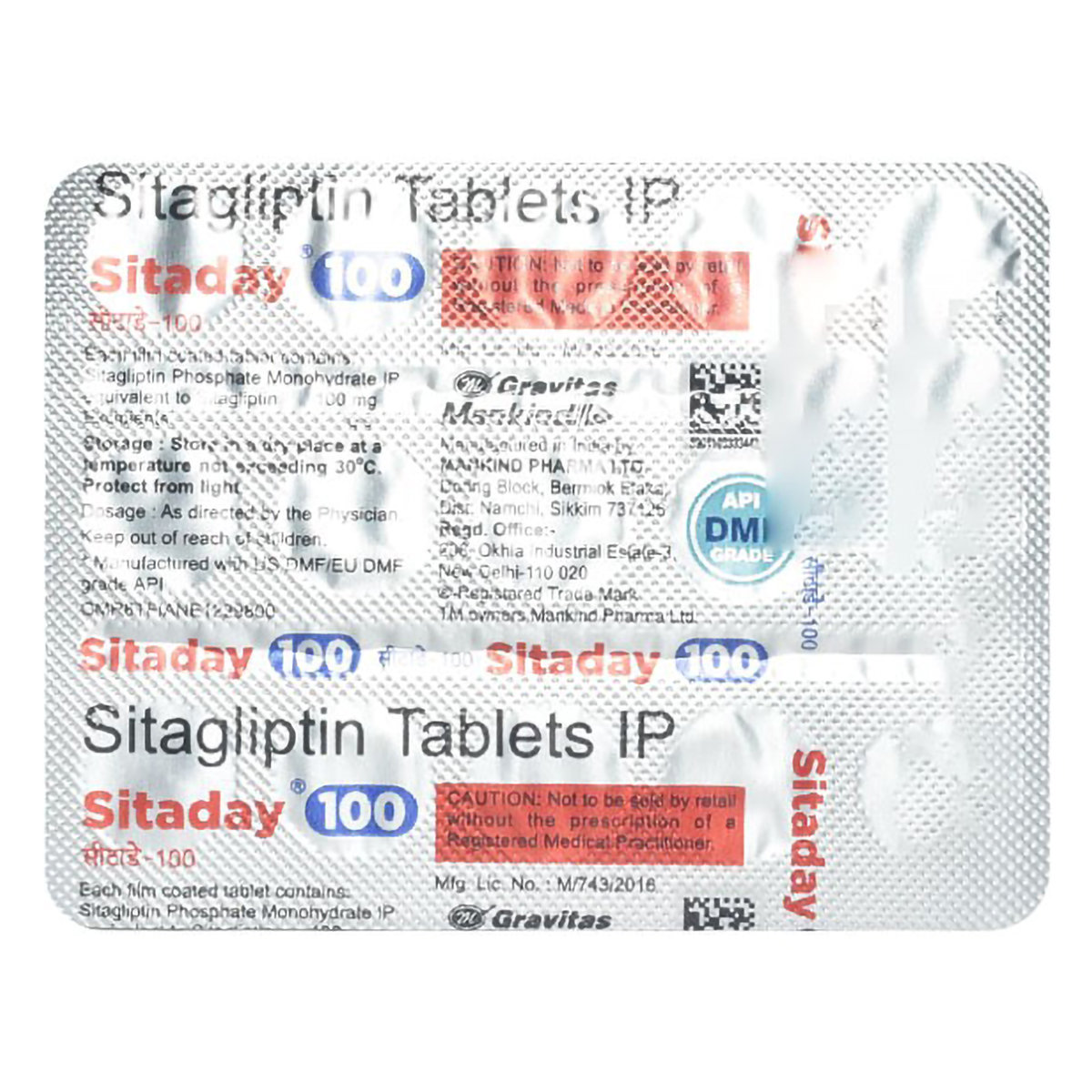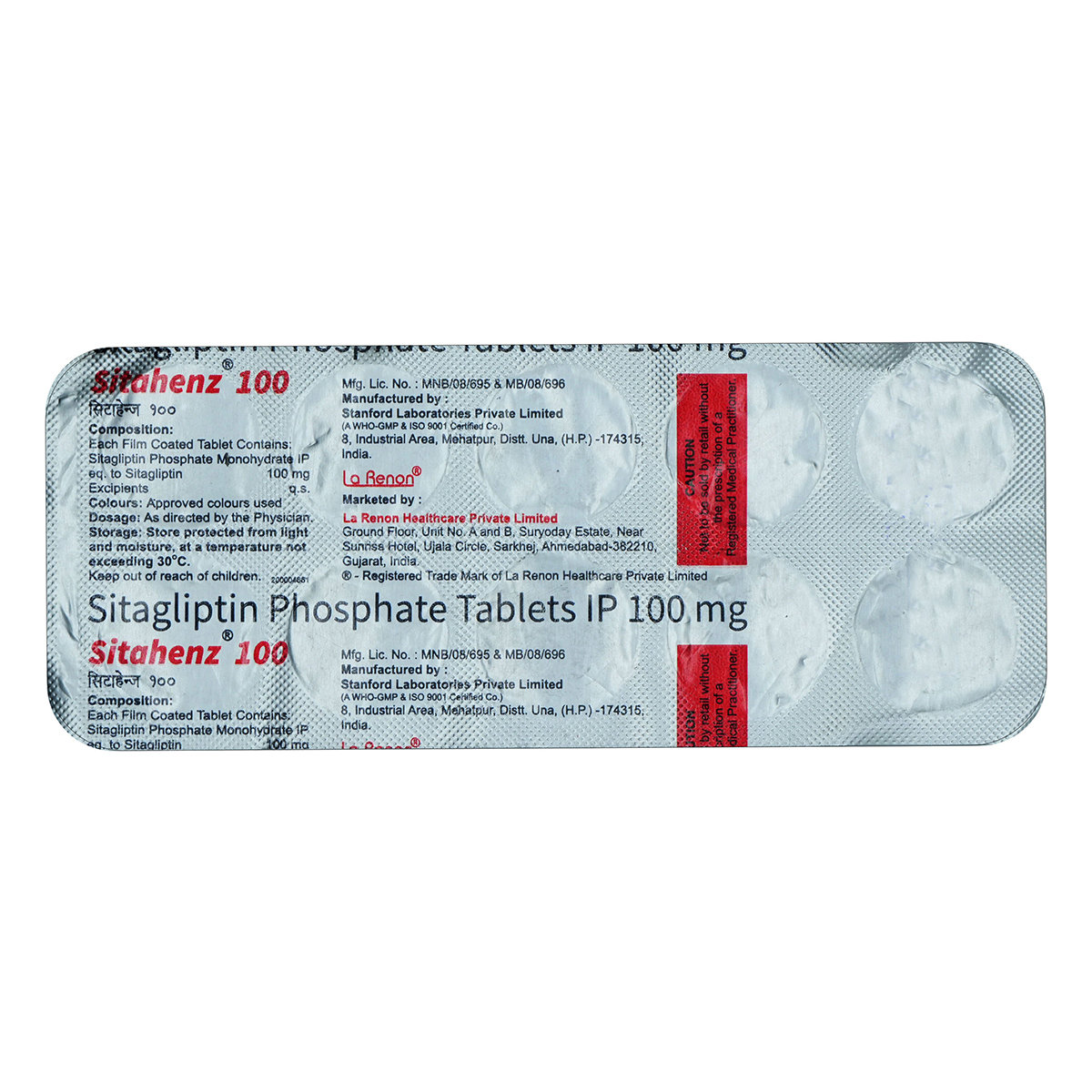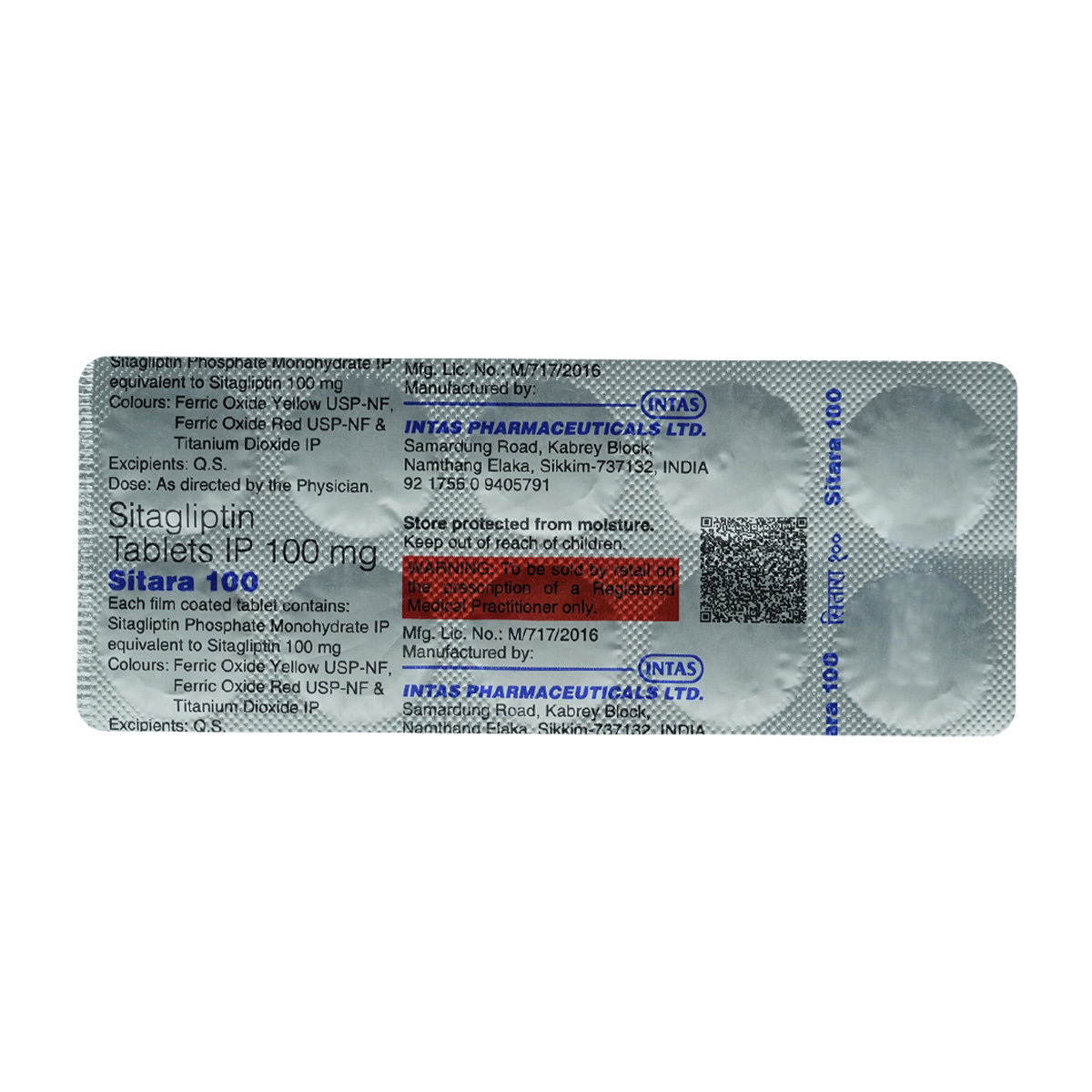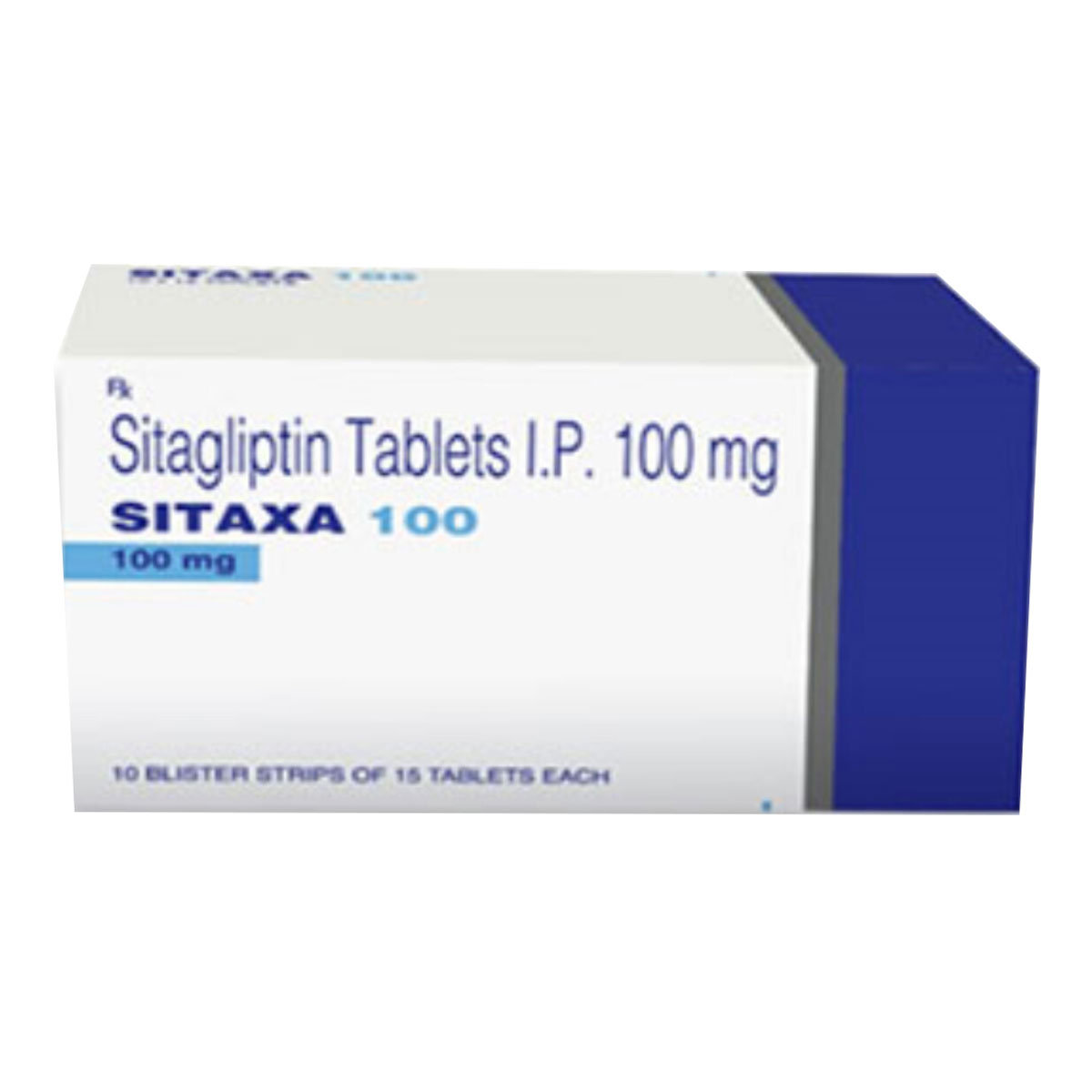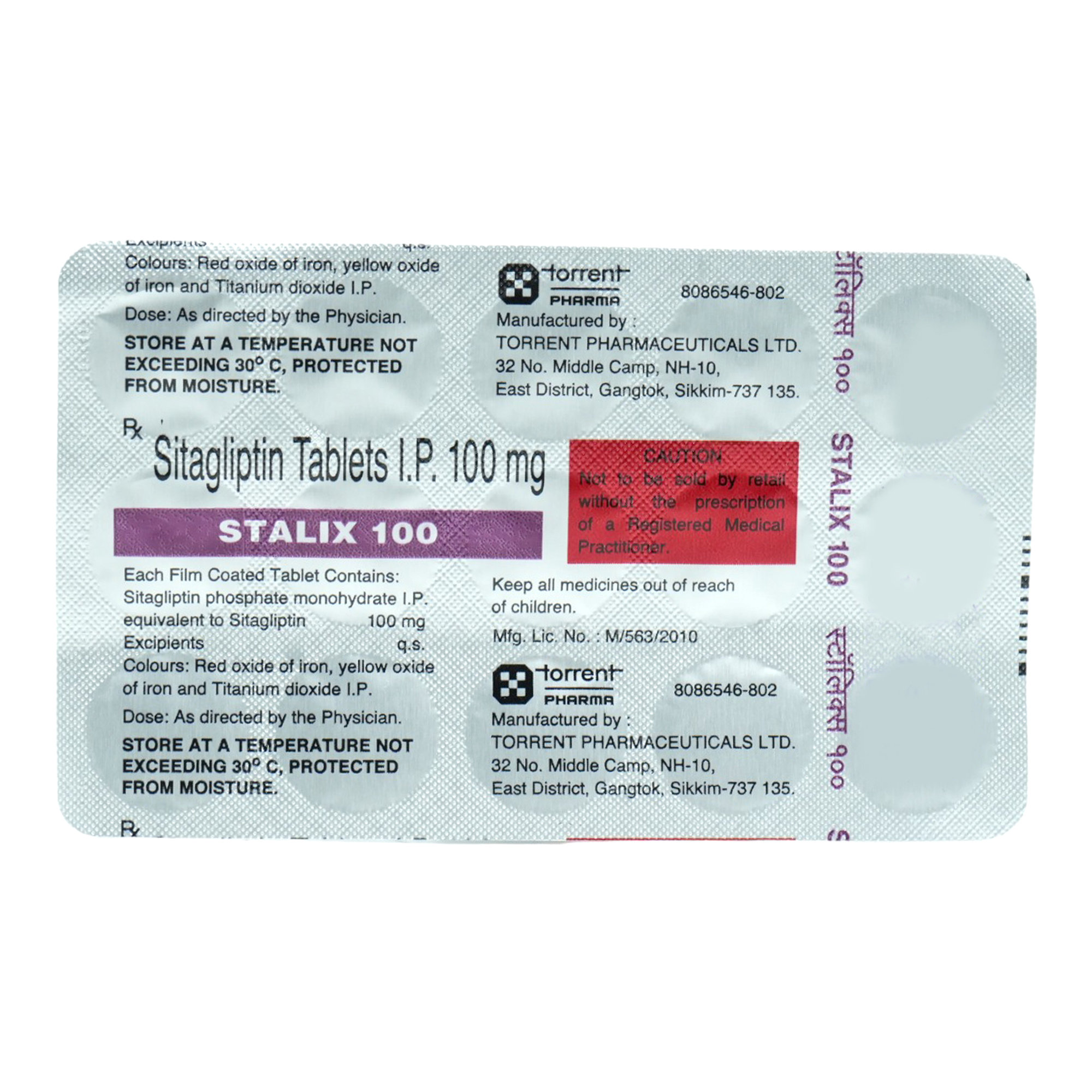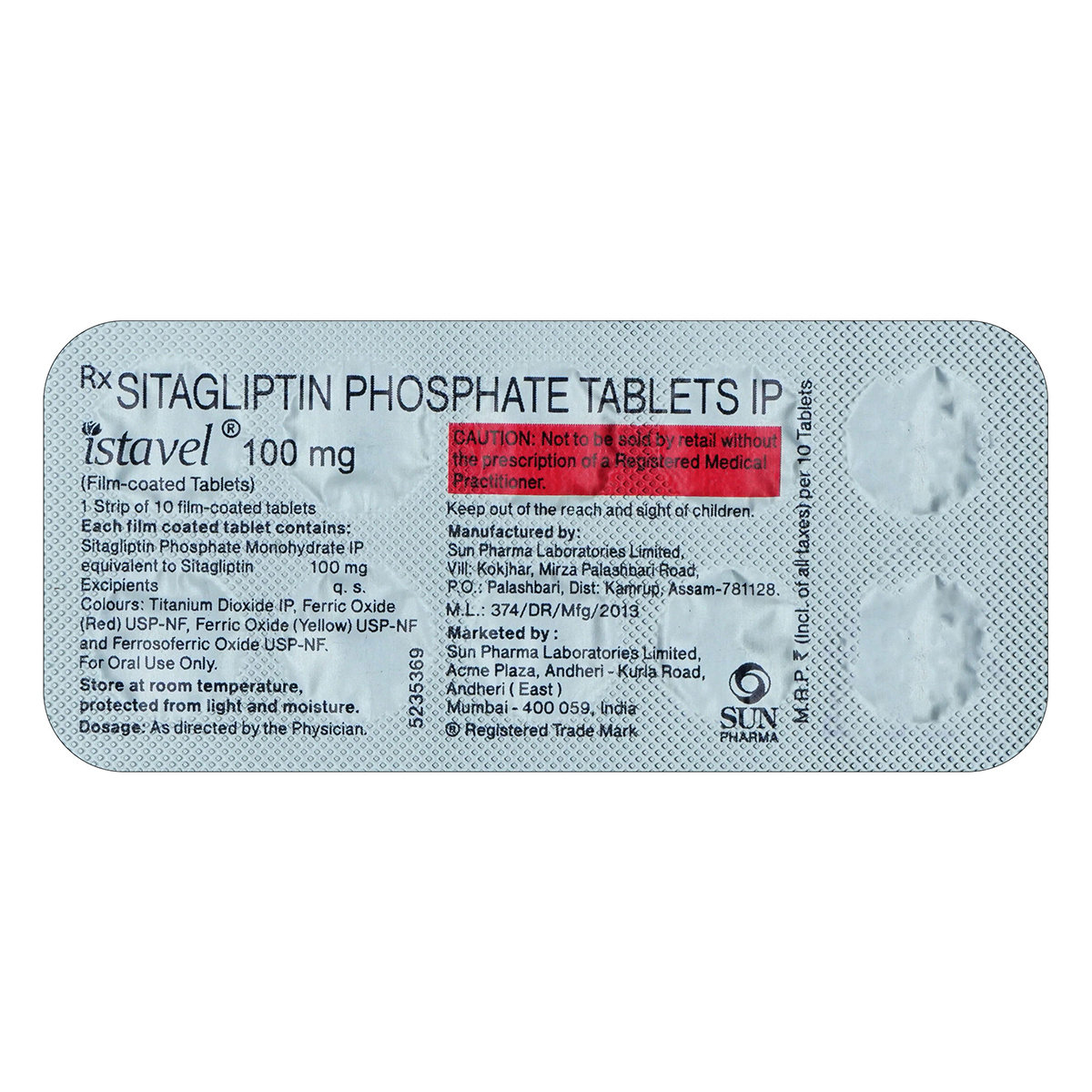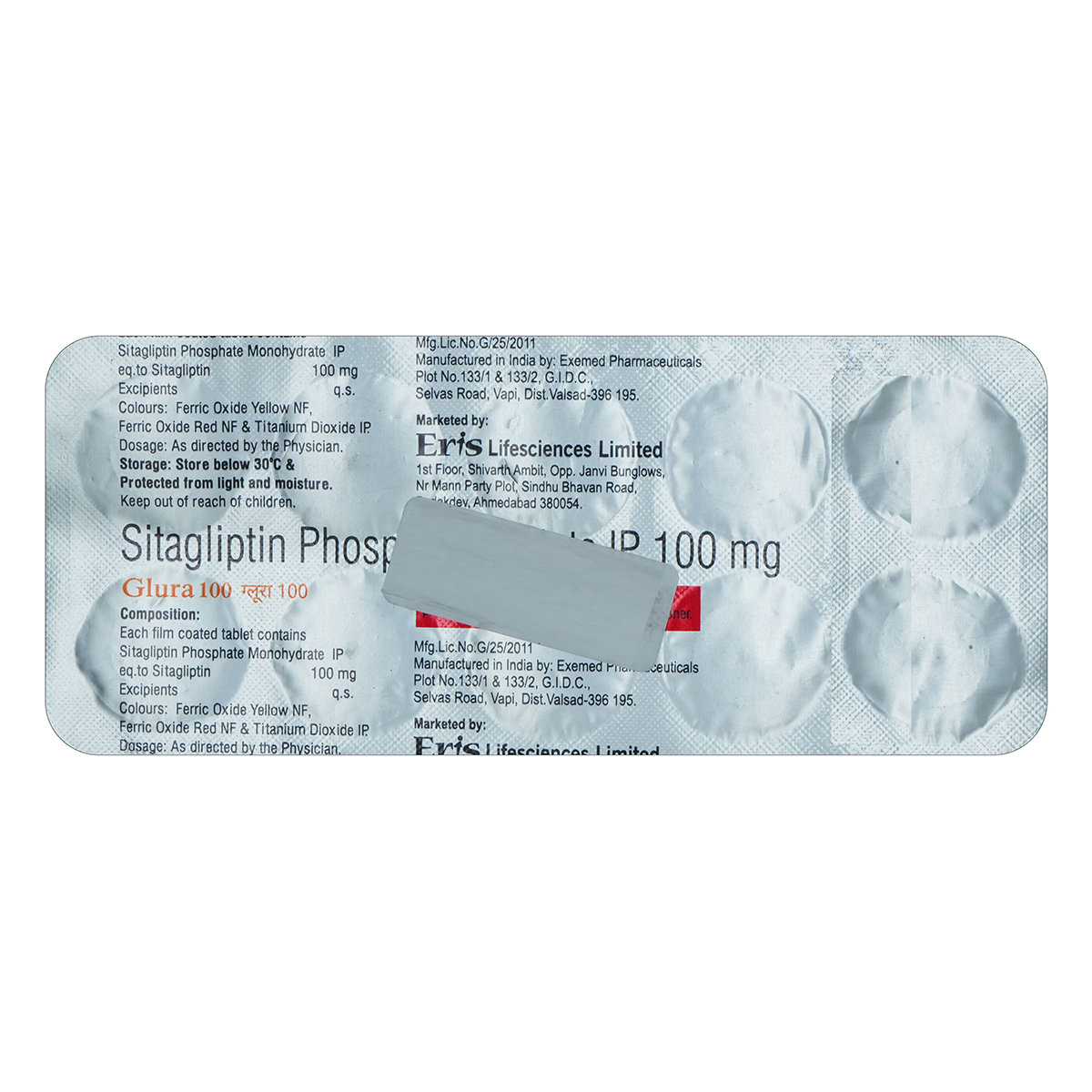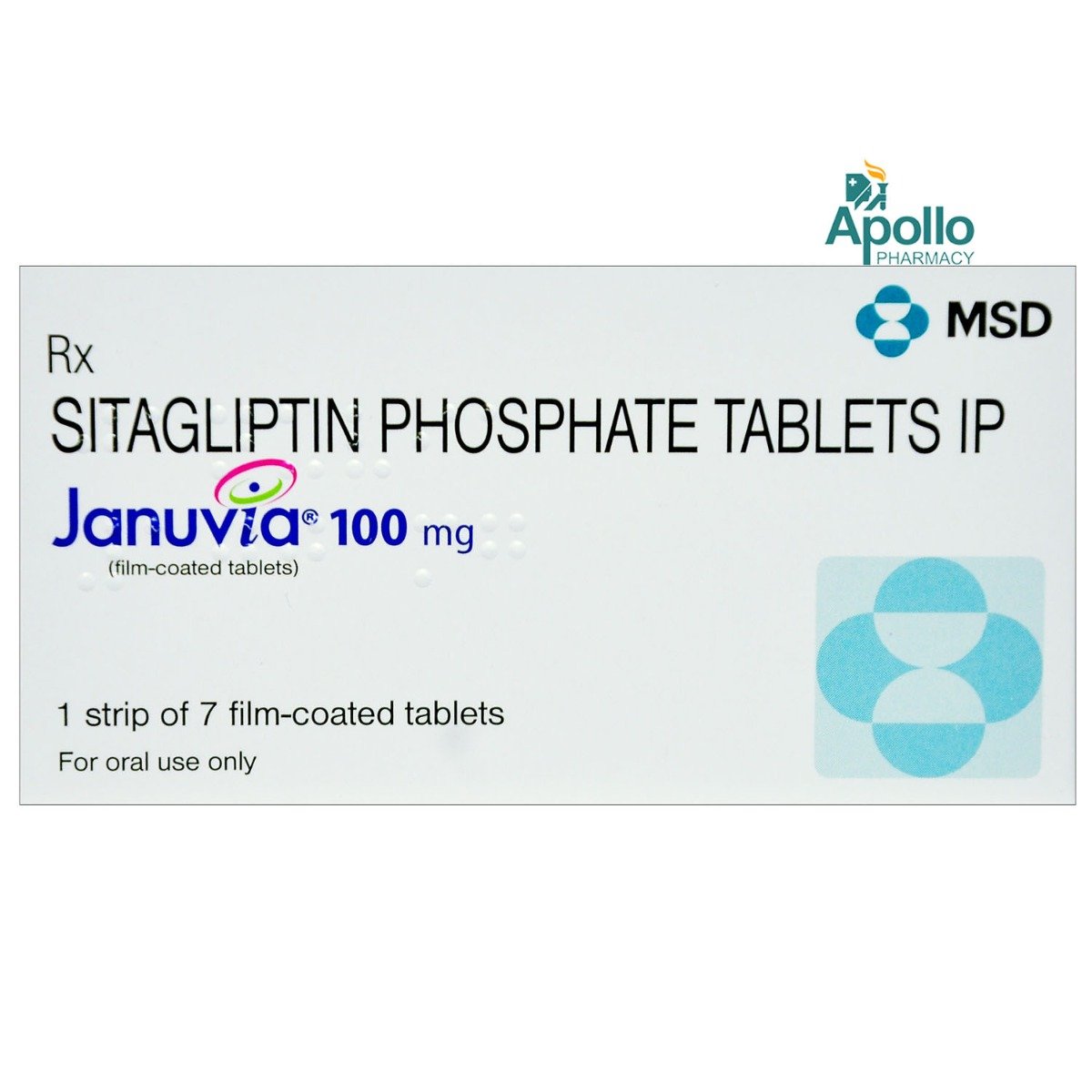Sitabend Tablet 10's
MRP ₹123.5
(Inclusive of all Taxes)
₹18.5 Cashback (15%)
Provide Delivery Location
Online payment accepted
 Prescription drug
Prescription drugWhats That
Composition :
Manufacturer/Marketer :
Consume Type :
Expires on or after :
Return Policy :
About Sitabend Tablet
Sitabend Tablet belongs to the class of dipeptidyl peptidase-4 (DPP-4) inhibitors used in treating type 2 diabetes in adults. Sitabend Tablet is prescribed for the condition of type 2 diabetes when diet and exercise alone cannot control their blood sugar levels. It is the first-line therapy for patients with type 2 diabetes that restores the body's response to insulin. Insulin is the hormone that controls sugar levels in your blood. People with type 2 diabetes either do not produce enough insulin, or the insulin produced cannot perform its function in the body (insulin resistance). Middle-aged or older individuals are most likely to suffer from type 2 diabetes, so it is also known as adult-onset diabetes.
Sitabend Tablet contains sitagliptin. Sitabend Tablet work by blocking the action of DPP-4 (an enzyme which destroys the hormone 'Incretin'). The enzyme 'Incretins' helps produce more insulin only when required and reduces blood sugar produced by the liver when not needed.
Sitabend Tablet should be taken with food or an empty stomach. However, it should be taken at the same time of the day each time for the best results. For better advice, your doctor will decide what dose should be taken, which can change quickly depending on your condition. The most common side effect of Sitabend Tablet is hypoglycaemia (low blood glucose levels), upper respiratory tract infection, nasopharyngitis (infection of the nose and throat with common cold) and headache.
Sitabend Tablet should not be used in patients with type 1 diabetes and for treating diabetic ketoacidosis. Sitabend Tablet should not be stopped even if you feel better without consulting your doctor as the sugar levels change. If you stop taking Sitabend Tablet abruptly, it may increase your sugar levels which could further increase the risk of eyesight loss (retinopathy), kidney (nephropathy) and nerve damage (neuropathy). Sitabend Tablet should not be taken if you have severe kidney or liver disease. Please inform your doctor if you have any heart disease or planning to get pregnant or breastfeed. Prolonged intake of Sitabend Tablet may cause acute pancreatitis (swollen pancreas) and critical kidney problem. Increased risk of hypoglycaemia (low blood sugar level) can occur when Sitabend Tablet is added to other anti-diabetic agents or insulin therapy. In this case, your doctor may adjust the dose of Sitabend Tablet . Severe allergic reactions might occur in some patients taking Sitabend Tablet like anaphylaxis, angioedema (swelling under the skin), and exfoliative skin conditions, including Stevens-Johnson syndrome. The safety and efficacy of Sitabend Tablet in children under 18 years have not been established, so it should not be given to them. Patients taking digoxin (a heart medicine) with Sitabend Tablet should be closely monitored as severe drug interaction has been observed.
Uses of Sitabend Tablet
Directions for Use
Key Benefits
Sitabend Tablet work by blocking the action of DPP-4 (an enzyme which destroys the hormone ‘Incretin’). The enzyme ‘Incretins’ helps produce more insulin only when required and reduces blood sugar produced by the liver when not needed. Thus, Sitabend Tablet plays a vital role in controlling blood sugar levels and prevents serious complications of diabetes like eyesight loss (retinopathy), kidney (nephropathy), nerve damage (neuropathy), diabetic foot ulcer and delayed wound healing.
Storage
- If you experience low blood sugar levels, inform your doctor. They will assess the severity and make recommendations for the next actions.
- Your doctor will assess your symptoms, blood sugar levels, and overall health before recommending the best course of action, which may include treatment, lifestyle modifications, or prescription adjustments.
- Follow your doctor's instructions carefully to manage the episode and adjust your treatment plan.
- Make medication adjustments as recommended by your doctor to prevent future episodes.
- Implement diet and lifestyle modifications as your doctor advises to manage low blood sugar levels.
- Monitor your blood sugar levels closely for patterns and changes.
- Track your progress by recording your blood sugar levels, food intake, and physical activity.
- Seek further guidance from your doctor if symptoms persist or worsen so that your treatment plan can be revised.
- Drink water or other clear fluids.
- To prevent worsening of pain, limit intake of tea, coffee, or alcohol.
- Include bland foods like rice, toast, crackers, and rice in your diet.
- Avoid lying down immediately after eating as it may cause indigestion or heartburn.
- Avoid acidic and spicy food as it may cause indigestion.
- Drink warm fluids such as warm water with honey, broth, soup or herbal tea to soothe sore throat.
- Gargle with warm salt water.
- Suck on lozenges to increase the production of saliva and soothe your throat.
- Use a humidifier to soothe sore throat as it adds moisture to the air and makes breathing easier.
- Hydrate your body: Drink enough water to prevent dehydration and headaches.
- Calm Your Mind: Deep breathing and meditation can help you relax and relieve stress.
- Rest and Recharge: Sleep for 7-8 hours to reduce headache triggers.
- Take rest: lie down in a quiet, dark environment.
- Cold or warm compresses can help reduce tension.
- Stay Upright: Maintain good posture to keep symptoms from getting worse.
- To treat headaches naturally, try acupuncture or massage therapy.
- Over-the-counter pain relievers include acetaminophen and ibuprofen.
- Prescription Assistance: Speak with your doctor about more substantial drug alternatives.
- Severe Headaches: Seek emergency medical assistance for sudden, severe headaches.
- Frequent Headaches: If you get reoccurring headaches, consult your doctor.
- Headaches with Symptoms: Seek medical attention if your headaches include fever, disorientation, or weakness.
- Inform your doctor about the nausea and discuss possible alternatives to the medication or adjustments to the dosage.
- Divide your daily food intake into smaller, more frequent meals to reduce nausea.
- Opt for bland, easily digestible foods like crackers, toast, plain rice, bananas, and applesauce.
- Avoid certain foods that can trigger nausea, such as fatty, greasy, spicy, and smelly foods.
- Drink plenty of fluids, such as water, clear broth, or electrolyte-rich beverages like coconut water or sports drinks.
- Use ginger (tea, ale, or candies) to help relieve nausea.
- Get adequate rest and also avoid strenuous activities that can worsen nausea.
- Talk to your doctor about taking anti-nausea medication if your nausea is severe.
- Record when your nausea occurs, what triggers it, and what provides relief to help you identify patterns and manage your symptoms more effectively.
- Inform Your Doctor: Notify your doctor immediately about your diarrhoea symptoms. This allows them to adjust your medication or provide guidance on managing side effects.
- Stay Hydrated: Drink plenty of fluids to replace lost water and electrolytes. Choose water, clear broth, and electrolyte-rich drinks. Avoid carbonated or caffeinated beverages to effectively rehydrate your body.
- Follow a Bland Diet: Eat easy-to-digest foods to help firm up your stool and settle your stomach. Try incorporating bananas, rice, applesauce, toast, plain crackers, and boiled vegetables into your diet.
- Avoid Trigger Foods: Steer clear of foods that can worsen diarrhoea, such as spicy, fatty, or greasy foods, high-fibre foods, and dairy products (especially if you're lactose intolerant).
- Practice Good Hygiene: Maintain good hygiene to prevent the spread of infection. To stay healthy, wash your hands frequently, clean and disinfect surfaces regularly, and avoid exchanging personal belongings with others.
- Take Anti-Diarrheal Medications: If your doctor advises, anti-diarrheal medications such as loperamide might help manage diarrhoea symptoms. Always follow your doctor's directions.
- Keep track of your diarrhoea symptoms. If they don't get better or worse or are accompanied by severe stomach pain, blood, or dehydration signs (like extreme thirst or dark urine), seek medical help.
- Inform your doctor about the common cold symptoms you're experiencing due to medication.
- Your doctor may adjust your treatment plan, which could include changing your medication, adding new medications, or offering advice on managing your symptoms.
- Practice good hygiene, including frequent handwashing, avoiding close contact with others, and avoiding sharing utensils or personal items.
- Drink plenty of fluids, such as warm water or soup, to help thin out mucus.
- Get plenty of rest and engage in stress-reducing activities to help your body recover. If your symptoms don't subside or worsen, consult your doctor for further guidance.
Drug Warnings
Tell your doctor before consuming Sitabend Tablet if you have allergic reactions to sitagliptin, any medications, foods, or any components present in Sitabend Tablet . Prolonged intake of Sitabend Tablet may cause acute pancreatitis (swollen pancreas) and critical kidney problem. Increased risk of hypoglycaemia (low blood sugar level) can occur when Sitabend Tablet is added to other anti-diabetic agents or insulin therapy. In this case, your doctor may adjust the dose of Sitabend Tablet . Severe allergic reactions might occur in some patients taking Sitabend Tablet like anaphylaxis, angioedema (swelling under the skin), and exfoliative skin conditions, including Stevens-Johnson syndrome. The safety and efficacy of Sitabend Tablet in children under 18 years have not been established, so it should not be given to them. Patients taking digoxin (a heart medicine) with Sitabend Tablet should be closely monitored as severe drug interaction has been observed.
Drug-Drug Interactions
Drug-Drug Interactions
Login/Sign Up
Co-administration of Sitabend Tablet with Gatifloxacin may sometimes affect blood glucose levels. Both high blood glucose and, less frequently, low blood glucose have been reported.
How to manage the interaction:
Taking Sitabend Tablet with Gatifloxacin is not recommended as it can lead to a possible interaction, However, it can be taken if advised by the doctor. Consult the prescriber if you experience symptoms such as nervousness, confusion, headache, dizziness, drowsiness, tremors, nausea, hunger, weakness, perspiration, palpitation, rapid heartbeat, increased urination, increased thirst, and increased hunger. Maintaining blood glucose levels is advised. Do not stop using any medications without a doctor's advice.
When Sitabend Tablet is taken with Ivacaftor, the amount of Sitabend Tablet in the blood can go up.
How to manage the interaction:
Taking Sitabend Tablet with Ivacaftor together can possibly result in an interaction, but it can be taken if a doctor has advised it. Do not discontinue any medications without consulting a doctor.
As tirzepatide and Sitabend Tablet both work through similar pathways in the body, it is possible that using them together may result in an increase in side effects.
How to manage the interaction:
It is essential to inform your doctor about all other medications you are taking, including vitamins and herbal supplements. Do not stop using any medications without first talking to your doctor.
Drug-Food Interactions
Drug-Food Interactions
Login/Sign Up
Diet & Lifestyle Advise
- Invest at least 150 min of your week in moderate-intensity physical activity or one hour and 15 minutes of high-intensity exercise every week.
- Losing weight gradually to achieve a healthy body mass index (18.5 to 24.9).
- Replacing refined carbohydrates-containing foods with whole grain foods and increasing intake of fruits, veggies, and other fibre-enriched foods.
- Reduce saturated fat intake (or hidden fats) in food like chips, crisps, pastries, biscuits and samosas. Choose omega-3 fatty acid-containing oils for daily cooking. For frying, you can use palm oil, mustard oil, groundnut oil, rice bran oil, and safflower oil.
- Avoid taking too much stress as it may elevate your blood sugar level. You can adopt stress management techniques like mindfulness to control stress-related blood sugar changes or meditation or yoga.
- Opt for low-fat dairy products (low-fat yoghurt, fat-free milk and cheese etc.).
- Keep your blood pressure as normal (140/90) as possible as it reduces the risk of cardiovascular diseases in diabetes patients.
Side Effects of Sitabend Tablet
- Hypoglycaemia (low blood glucose levels)
- Upper respiratory tract infection
- Nasopharyngitis (infection of nose and throat with common cold)
- Headache
Habit Forming
Therapeutic Class
All Substitutes & Brand Comparisons
RX
Alsita-100 Tablet 10's
Alkem Laboratories Ltd
₹110.5
(₹9.95 per unit)
10% CHEAPERRX
Sitapride 100 Tablet 15's
Micro Labs Ltd
₹167.5
(₹10.05 per unit)
9% CHEAPERRX
Sita OD 100 Tablet 10's
Macleods Pharmaceuticals Ltd
₹120
(₹10.81 per unit)
2% CHEAPER
Author Details
We provide you with authentic, trustworthy and relevant information
Drug-Diseases Interactions
Drug-Diseases Interactions
Login/Sign Up
Pancreatitis: Patients using Sitabend Tablet may cause acute pancreatitis. Use cautiously in patients who have a history of pancreatitis or pancreatic disease are at higher risk. Monitor for pancreatitis symptoms and indications. Discontinue therapy if pancreatitis is suspected.
How to manage the interaction:
Sitabend Tablet should be used with caution in patients with a history of pancreatitis or pancreatic disease. Patients should be observed for signs and symptoms of pancreatitis during treatment and if pancreatitis is suspected, treatment should be discontinued immediately.
Renal dysfunction: Assess renal function before initiating Sitabend Tablet therapy. Adjust the dose as per moderate to severe renal insufficiency. Otherwise, observed worsening renal function.
How to manage the interaction:
Dose adjustment may be needed in people with moderate to severe renal insufficiency and end stage renal dysfunction.
FAQs
Drug-Drug Interactions Checker List
- BUPROPION
- CEPHALEXIN
- CIPROFLOXACIN
- CIMETIDINE
- DIGOXIN
- DOLUTEGRAVIR
- GLYCOPYRROLATE
- TOPIRAMATE
- LAMOTRIGINE
- RANOLAZINE
- ALPHA LIPOIC ACID
- ASPIRIN
- PROTHIONAMIDE
- PEGVISOMANT
Disease/Condition Glossary
Type 2 diabetes is a condition where the body is unable to make sufficient insulin, or the insulin that it makes doesn't work properly or is utilized by our body. This can cause high blood sugar levels (hyperglycaemia). Symptoms of type 2 diabetes include increased thirst, frequent urination at night, slow wound healing, increased hunger, fatigue, and blurred vision. In some cases, weight gain may occur, while in rare cases, weight loss may be observed. The complication of type 2 diabetes also include neuropathy (nerve problems), nephropathy (kidney problems), retinopathy (damaged retina of eyes or blindness), loss of limbs, sexual dysfunction, and an increased chance of heart attack or stroke.

Have a query?
Alcohol
Safe if prescribed
No interaction was found. However, it is advisable not to take or limit alcohol as a precautionary measure.
Pregnancy
Consult your doctor
Sitabend Tablet is not suggested during pregnancy since there is insufficient evidence on how it may impact a growing infant.
Breast Feeding
Consult your doctor
Consult your doctor; there is no substantial research yet on using Sitabend Tablet in breastfeeding/nursing mothers. Sitabend Tablet should be used in breastfeeding mothers only if the benefits outweigh the risks.
Driving
Safe if prescribed
Sitabend Tablet should not impair your ability to drive, or operate machinery or tools if your blood sugar levels are stable. When your blood sugar levels drop too low, your concentration suffers. If this occurs, refrain from driving or using equipment or tools until you feel better.
Liver
Consult your doctor
In rare cases, liver enzyme elevations have been reported in the prolonged usage of Sitabend Tablet . So, if you have or have a history or evidence of any liver-related diseases, please consult the doctor before taking medicine.
Kidney
Consult your doctor
Acute renal failure has been reported in the patients taking Sitabend Tablet . In severe cases, it sometimes requires dialysis. Hence, dosage adjustment can be recommended in patients with moderate or severe kidney disease and patients with kidney failure (ESRD - end-stage renal dialysis).
Children
Safe if prescribed
The safety and efficacy of Sitabend Tablet in children have not been established.




